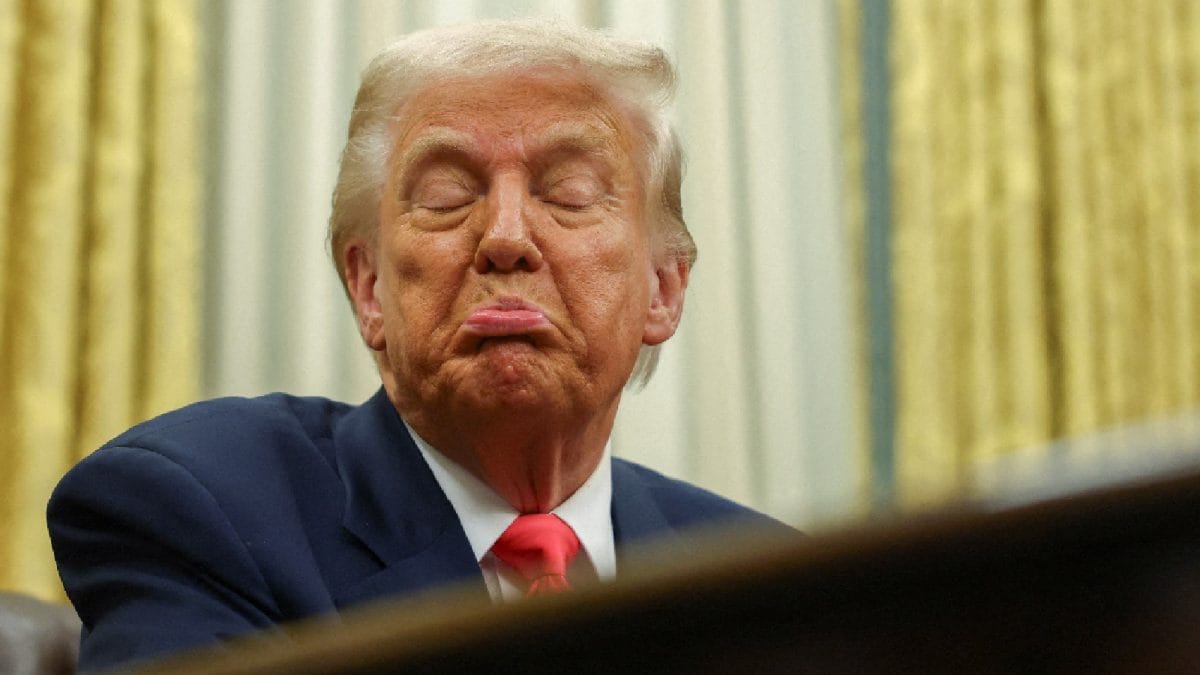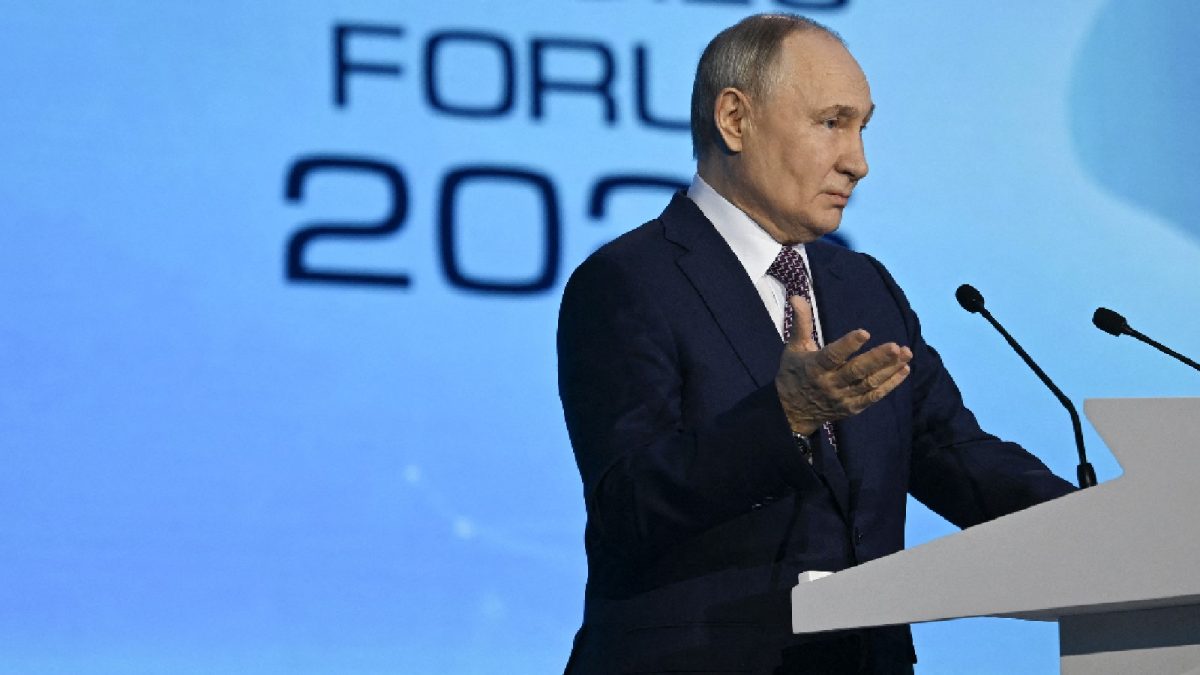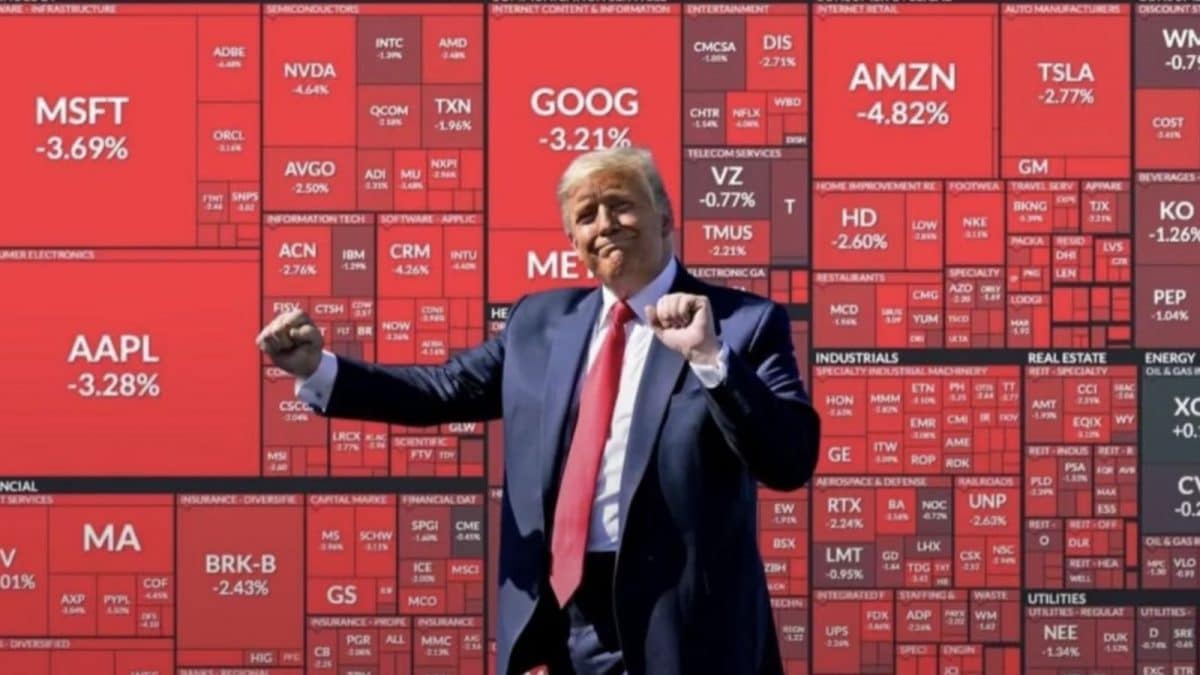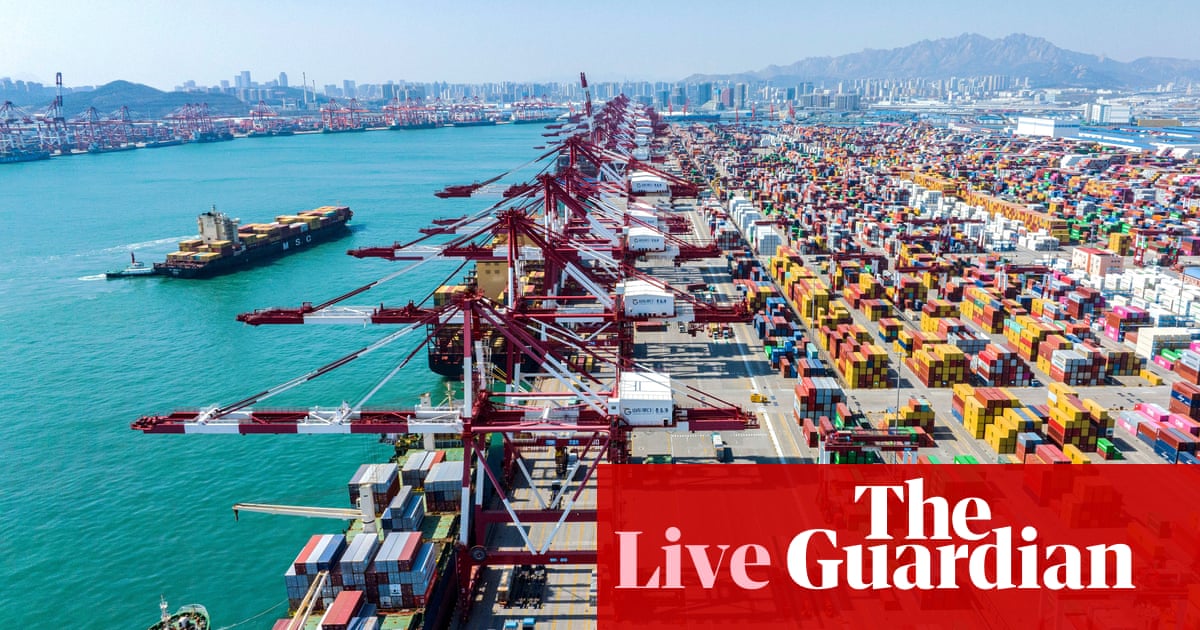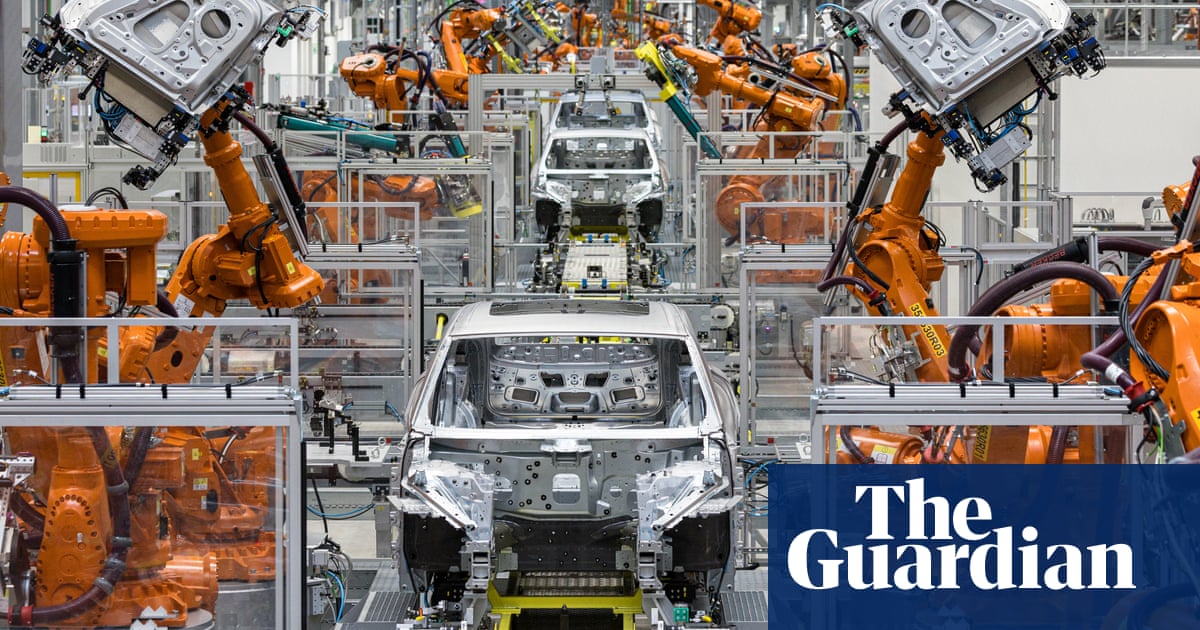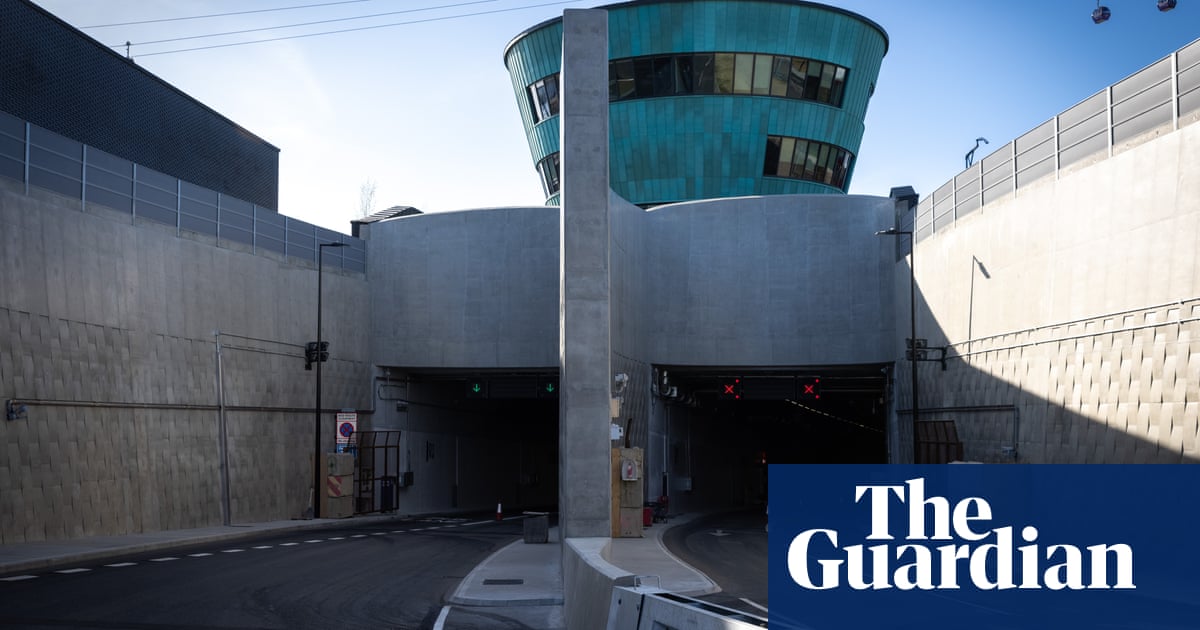Dutton tells Tasmanians Labor will ‘destroy’ salmon industry

Krishani Dhanji
Opposition leader Peter Dutton is also at a campaign rally, in the battleground state of Tasmania.
A key issue in the state has been the future of the salmon industry at Macquarie Harbour and its impact on the Maugean skate, an endangered fish.
During budget week, Labor passed legislation to secure the industry – with support from the Coalition – but Dutton’s claiming Labor will “destroy” the salmon industry.
You know the story all too well, Labor was on a pathway to destroy the Tasmanian salmon industry, exactly what they want to do to forestry in this great state as well … we stopped Labor’s plan to stop salmon farming here in Tasmania.
Key events Show key events only Please turn on JavaScript to use this feature
University vice-chancellor says attacks on international students harms Australian economic future and cultural vibrancy
Some quite moving comments from the vice-chancellor of Swinburne University of Technology in Melbourne, Professor Pascale Quester, on the Coalition’s announcement today it would place a cap on international students, that would see the number of international students fall by 80,000.
Quester, who was herself an international student, says she knows firsthand the “vibrancy international students bring to our cities”.
“We must stop the attacks on international students. They are not some mythical group of people. They are individuals with dreams, ambitions, and, for some of them, the perfectly legitimate desire to contribute to our national project. These students come to Australia, receive an excellent education and, when they opt in to stay, they go on to build careers, lives and communities here.”
Quester also said the continued attacks on international students from both sides of politics “damages Australia’s long-term economic and technological future”.
It is depriving our country of its best chance to access the talent we so desperately need to pivot from an economy that just digs things out of the ground to one that is tech-savvy, entrepreneurial and part of the knowledge economy.
The cold hard truth is we do not have enough Australian high school students interested in pursuing Stem at university. Forget about brain drain – our nation is at serious risk of a brain drought. students, who we know are increasingly wanting to study Stem subjects, are critical to our future as a knowledge economy.
Dutton tells of the day he bought his dad some wild drive time
A slightly odd personal story from Peter Dutton to end his campaign event in Tasmania and segue into another spending announcement for the southern state, as the opposition leader tells of how he bought his father a ride in a Porsche around a racetrack for Father’s Day that nearly killed him, as he announces $18m to upgrade a local racetrack.
There are some things that you’ll remember during these election campaigns, and some of it’s just a whirlwind – you’re going from one place to the next – but I do remember most of a fast lap that I had not too far from here … around the track at at Symmons Plains raceway.

The fast lap Dutton did reminded him of the Father’s Day racetrack gift he bought Dutton Snr a few years ago.
Now, I thought it was a great thing, a good thing to do as a son, and I remember it was about three or four laps, and about halfway through the second or third lap the guy decided to put his foot down and really give Dad the ultimate experience. But instead, what happened is that the car - and I can watch this in my mind as I speak to you in slow motion – started to do 360s and the car started to spin off the track into the sand.
The story ended well – Dutton Snr lived to tell the tale. But as the opposition leader said today: “I did have flashbacks back to that moment when I was out on the track only a week or so ago.” And then he segues neatly into a spending announcement:
We’ve committed $18 million to upgrade that racetrack, and I think that’s going to be a phenomenal investment in Tasmania.
What a whirlwind.
Dutton says Plibersek could close down Tasmanian forestry industry ‘overnight’
More from Peter Dutton’s rally in Tasmania, where he is warning a crowd about the state’s forestry industry that “Tanya Plibersek, equally, along with Bob Brown and others, could close it down overnight.”
The contest in Tasmania will be a close one. The seat of Lyons – and Dutton spends a while in his speech proffering fierce warnings to offer about Rebecca White, who is running as the Labor candidate in that seat – is held by Labor by a margin of just 0.9%. The Labor MP Brian Mitchell is set to retire. So, the contest is on.
Dutton has a raft of Tasmania-focused announcements today, including that the Coalition will invest $40m to establish a new timber manufacturing expansion program, $65m to support Tasmanian industry regarding freight equalisation, and $80m to upgrade a 40km stretch of the Bass Highway work that he says will get under way “very quickly” if the Coalition is elected.
Dutton tells Tasmanians Labor will ‘destroy’ salmon industry

Krishani Dhanji
Opposition leader Peter Dutton is also at a campaign rally, in the battleground state of Tasmania.
A key issue in the state has been the future of the salmon industry at Macquarie Harbour and its impact on the Maugean skate, an endangered fish.
During budget week, Labor passed legislation to secure the industry – with support from the Coalition – but Dutton’s claiming Labor will “destroy” the salmon industry.
You know the story all too well, Labor was on a pathway to destroy the Tasmanian salmon industry, exactly what they want to do to forestry in this great state as well … we stopped Labor’s plan to stop salmon farming here in Tasmania.

Krishani Dhanji
Albanese says battery policy helps make voting choice ‘crystal clear’
On the battery policy – which Labor says will benefit Queenslanders more than any other state – Albanese said it helped makes the choice between the two parties “crystal clear”.
Our plan for cheaper home batteries will start on the 1st of July this year. It makes the choice crystal clear: wait until sometime in the 2040s for expensive nuclear energy under the Liberal party, or save money this year and every year afterwards with solar power under Labor.
The $2.3bn plan will slash the cost of household batteries by 30%, as part of a dual cost-of-living and climate action pitch to voters.
Foreign affairs minister Penny Wong told Insiders this morning it would help about 1m households to 2030.

PM says Labor to 'make people better off over next three years' in first campaign rally

Krishani Dhanji
Anthony Albanese has formally launched the battery policy at his first election rally, in Queensland.
The PM was met with a rapturous welcome, addressing adorning crowds of Labor supporters – and plugging his government’s tax cuts and investment in Medicare.
He also attacked comments from the opposition leader – who hails from Queensland – that he’d like to live at Kirribilli House in Sydney over the Lodge in the nation’s capital.
Albanese celebrated what’s been a strong first week of the campaign for Labor.
[We’re] building on the strong foundations we have laid over the last three years, focusing on the policies that will make people better off over the next three years.
And while we have been running on our positive plan, the LNP have been running for cover. Running away from questions about their promise to cut wages and increase taxes, and try and run and hide from the cuts they will make to education and health to pay for their $600 billion nuclear reactors.

Labor’s home battery plan welcomed as ‘significant’ help for lowering bills
The Clean Energy Council (CEC) has welcome the government’s rooftop solar battery announcement today that would see users save 30% on a household battery, calling it a “significant and welcome cost-of-living measure” for the 4 million Australians with rooftop solar.
The CEC said the average upfront cost of purchasing a battery was around $14,000, which had been a barrier to entry for many homeowners, with less than 5% of households with rooftop solar investing in battery storage, according to CEC data.
“It’s been the missing piece of the energy transition puzzle when it comes to further reducing energy bills for Aussie households,” said the CEC’s general manager, Con Hristodoulidis. He added:
The government’s proposed discount of $4,000 on a medium-sized (11.5 kWh) battery will see homeowners save around $1,100 per year on their bills…
The more batteries we have in the system, the more power we can store and use for those peak times when energy is more expensive, and taking pressure off the distribution network leads to lower power bills for everyone. Our analysis shows this network saving can be as high as $190m for all energy users.
A national battery scheme will ensure more households will be empowered to turbocharge their energy independence and save on their bills. It’s good news for everybody’s wallets, and the long-term future of Australia’s modern energy system – built on the cheapest form of renewable energy backed by storage.

The Australian Council of Social Service (Acoss) welcomed the announcement, saying it would “support a faster transition to clean energy and help lower power bills for all” but also called on the government to investment in thermal efficiency, electric appliances and solar for those struggling the most.
“Supporting ongoing investment in renewable energy and energy storage, like home batteries, is critical to addressing the climate crisis and lowering power bills, rather than polluting and expensive gas and nuclear,” said the acting CEO of Acoss, Edwina MacDonald.
However, if parties are serious about providing targeted energy bill relief to people with the least, there must also be further investment in measures like thermal efficiency, electric appliances and solar for low-income housing and renters.
The reality is the home battery subsidy will be taken up by people who own a home and already have solar and lower energy bills. It’s the people on the lowest incomes and renters that continue to miss out.
Greens blast Coalition’s international student cap as ‘blatantly racist’
The Greens have issued an excoriating statement blasting Peter Dutton’s announcement today that the Coalition would cut the intake of foreign students by 80,000, in a plan aimed at reducing demand for housing.
Under the plan there, at most 115,000 overseas students would be allowed to commence study in Australia at publicly funded universities each year, and a further 125,000 in the vocational education and training (VET), private university and non-university higher education sectors.
The Coalition said this would result in a reduction of more than 80,000 in annual new overseas student commencements compared with 2023 levels and was done in a bid to reduce pressure on housing.
But the Greens have labelled the move “blatantly racist” and “a cynical attempt to scapegoat migrants and international students for a housing crisis they didn’t cause”.

Senator Mehreen Faruqi, deputy leader of the Australian Greens and spokesperson for higher education, said:
Dutton’s plan to slash student numbers and triple visa fees is a cynical ploy to stoke fear and division in the lead-up to an election. It’s a smokescreen to cover up the Coalition’s own failures and inaction.
Labor must take responsibility for starting this round of punching down on international students with the caps they pushed for last year. We knew this was going to turn ugly and harm so many people of colour living in this country.
The facts are clear, we’ve seen the evidence: international students are not the cause of skyrocketing rents or unaffordable housing. That responsibility lies squarely with successive governments who have refused to build enough public housing and prioritised lining the pockets of wealthy property investors.

Henry Belot
Greens to push for free early childhood education
The federal Greens have named access to free, universal early childhood education as one of their priority policies in the event of a minority government.
The party has proposed treating early childhood like public schools. It would push for every child to have access to 50 hours of free education and care a week. It would also extend universal access to pre-school to 30 hours a week for all three- and four-year-olds.
The policy would cost an estimated $29bn over four years.
Greens leader Adam Bandt will launch the policy alongside the party’s candidate for Macnamara, Sonya Semmens, and Senator Steph Hodgins-May later today.

Here’s Bandt:
In a wealthy country like ours everyone should be able to afford childcare, but too many families are struggling with the cost.
What Labor’s doing isn’t working, and Peter Dutton would take childcare backwards.
Experts predict we’re heading for a minority parliament, where the Greens will keep Dutton out and push Labor to treat early childhood education like school, where it should be free to go with quality guaranteed.
Wong says a million households will take up solar batteries by 2030
Penny Wong has defended Labor’s announcement today that it will assist householders with rooftop solar to buy batteries, after being quizzed on how many people the policy would actually help.
The government has announced that if re-elected it will make batteries cheaper for households, small businesses and community facilities – reducing the cost of the typical home battery by 30%, starting from 1 July.
Batteries for household solar cost around $6,000–$14,000 for rooftop systems with 6-10kw capacity, and David Speers asked the foreign minister how many people could take advantage of the policy, even with the 30% price reduction being offered by the government.
“We think, up to 2030, about a million households,” said Wong.
Can I tell you, the mismatch we’re trying to address here is we have a lot of people with solar on roofs but not a lot of people with batteries to ensure they can make full utilisation of that power. We need to bridge that gap. That’s what this policy does.

But pushed on the fact that those on the lowest income will not be able of afford this, she said:
It’s not the only policy we have. You have seen energy rebates. We know energy prices have been difficult, there’s a range of reasons for that. One of them is the war in Ukraine, the effect on global energy prices, and the other is nearly a decade of Coalition government where we saw supply exit the system.
Wong says Australia will ‘stick with Aukus’ despite Trump tariffs
The foreign minister, Penny Wong, has said the Australian government will stick with the Aukus submarine plan, despite the announcement of 10% tariffs of Australian exports to the US, because “our strategic relationship and our alliance with the United States is bigger than a bad decision”.
“The second point I’d make is Aukus is critical to Australia’s defence capability. That’s why we are proceeding down this path. It’s also why the call for Mr Dutton to link defence into a trade dispute is so risky and so reckless, as prime minister Howard pointed out himself,” Wong told ABC’s Insiders.
Asked whether the government should “stick with Aukus” regardless of the US president’s behaviour, she said: “We stick with Aukus because it’s in Australia’s national interests. As all defence decisions should be, as all economic decisions should be.”

Wong also said the Trump tariffs showed the importance of Australia diversifying its trade relationships, saying Australia had “some agency here”.
We have some capacity to engage with other countries who also want to continue to see trade flow. We have a capacity to diversify our economic relationships.
We know that US exports from Australia is about 5% of our exports and that’s why we have got to continue to grow our exports with other countries. India, which has become our fourth largest export market, we see our south-east economic strategy – which I talked about for the last couple of years – is so important and we’re seeing that develop. And, of course, other trade agreements that we are in or pursuing.
Littleproud says Coalition to 'impose a charge' on gas exports until domestic needs met
The s leader is being asked about the Coalition’s gas plan, announced during the opposition leader’s budget-in-reply speech, and confusion about how it’ll work.
Littleproud said:
In effect, there’s about 1200 petajoules that are foundation contracts that we’re not going to touch. We have to maintain our international relationships. What we’re also having, our domestic grid at the moment, is around 500 petajoules that comes from the domestic grid, but there’s 300 petajoules that Anthony Albanese [allows to be exported], rather than keeping for Australians … we’re saying about 50 to 100 petajoules of that should come into the domestic market.
Littleproud said he was also going to work to get more gas into the system from the Gippsland region in Victoria.
That will then mean that it’ll give confidence for gas companies to continue to drill and to get gas into our grid but continue to export, because that also helps us.

On the mechanism by which the gas reservation will be enforced, which has been one of the major questions relating to the Coalition’s policy, Littleproud said the Coalition would be “imposing a charge” on exports until a certain amount of gas – a peak amount of around 550 to 600 petajoules – was in the domestic grid.
But on what that charge will be, Littleproud said that was still to be announced.
The s leader has been asked why there are so many details in the Coalition’s policies that have not been announced.
“Not too many people have been engaged,” he said.
We’re going to announce our policies when it’s right and we get the best bang for buck on this.
Littleproud says PM’s ‘disparaging comments’ about Trump may have affected tariffs
s leader David Littleproud says the US and Australia needs “relationship reset” after Donald Trump’s tariff announcement this week.
Speaking on ABC’s Insiders, Littleproud has argued that the US president’s announcement of 10% tariffs on Australian exports to the US may have been motivated in part by “disparaging comments” made by Anthony Albanese about Trump. He did not say what the disparaging comments were to which he was referring.
Littleproud said:
We’ve got a prime minister that unfortunately can’t even get a phone call with the president, and I sense that’s probably because of the personal disparaging comments he’s made about President Trump in the past…
The prime minister’s made disparaging comments about President Trump previously, and there’s no way in the world that his advisors haven’t dropped that in his ear somewhere along the line.

Littleproud said Mexico and Canada didn’t get blanket tariffs and there were “some nuances in terms of the concessions that they were able to get”, but that the Australian PM had not been able to achieve a similar arrangement because Albanese couldn’t “get a phone call or even a meeting in the lead-up to what we could see was coming”.
You need to be able to get in that room.
Mexico and Canada were both spared blanket “liberation day” tariffs this week, but previously announced 25% tariffs on certain industries and imports were came into effect hours after Trump’s Rose Garden tariff announcement.
Coalition says its foreign student cap would be 30,000 lower than Labor’s
We’ve received some more details of the Coalition’s plan on cutting international students. It says that under its plan, there will be at most 115,000 overseas student commencements each year at publicly funded universities and at most 125,000 in the vocational education and training (VET), private university and non-university higher education sectors.
The Coalition says this will result in a reduction of more than 80,000 in annual new overseas student commencements compared with 2023 levels; a reduction in at least 30,000 new overseas student commencements each year compared with Labor’s 2025 allocation.
Keen followers of this debate (or blog) will recall that the Coalition blocked Labor’s plan to cap international student numbers at the end of last year.

The Coalition announcement today says that to achieve the reduction at public universities, a percentage cap will be applied that is is expected to be about 25% and that it expects it to “overwhelmingly affect” metropolitan, rather than regional universities, in particular the Group of Eight universities, which the Coalition says “have admitted excessive numbers of international students”.
The Coalition is also committing to:
Conduct a rapid review into the temporary graduate visas (subclass 485) to address the misuse of post-study work arrangements as a way to gain access to the Australian labour market and as a pathway to permanent migration
Increase the student visa application charge to $5,000 for Group of Eight universities and $2,500 for remaining international students. A new charge of $2,500 will be introduced for students who wish to change education providers.

Henry Belot
Labor releases modelling to claim Coalition nuclear plan will cost billions in debt repayments
Federal Labor has released its own analysis claiming the Coalition’s plan to build seven nuclear power plants could cost up interest repayments of up to $5.7bn a year.
The calculations, which were not conducted by an independent body, call on various sources of information, including modelling by Smart Energy Council, which suggests the total cost could be between $116bn and $600bn.
Labor’s assessment assumes the cost would be $600bn.
The treasurer, Jim Chalmers, has highlighted Labor’s assessment to argue Australians will pay billions of dollars just to service the debt incurred by building nuclear power plants.
Peter Dutton’s nuclear insanity is the biggest risk to household budgets and the biggest risk to the commonwealth budget.
Australians would have been much worse off if he had his way on tax cuts, wages and energy rebates and they’ll be worse off still if he wins the next election.

Dutton says he will cut 80,000 international students, citing housing demand
Elections are – at least in part – battles over whose message wins the day. And today’s message battle is between solar batteries and international students.
Peter Dutton has announced today that under the Coalition, foreign student intakes will be cut by 80,000, in a plan aimed at reducing demand for housing.
The Daily Telegraph reports that the move will see a percentage cap – believed to be around 25% – set on universities, VET and the higher education sector, and will reduce the number of new international students from 320,000 in 2023 to about 240,000.
Dutton said on Sunday morning that the number of international students had contributed to driving up of rents, particularly in Sydney and Melbourne.

Speaking about the announcement in Melbourne this morning, Dutton said:
student numbers are up by 65% under this government over the last 12 months. We [will] put in place a cap which will be 30,000 lower than what Labor has in place or 80,000 lower than what the numbers were just a couple of years ago.
This is a very significant step that we’re taking. It is all about making sure that we do what we can to help young Australians get into home ownership more quickly and how we can help with the rental crisis that Labor’s created as well.
Dutton hits at Albanese’s cheaper battery plan, saying ‘people will see through it’
Peter Dutton has come out swinging against the government’s battery announcement.
Speaking in Melbourne, the opposition leader says that the announcement from the prime minister that his government will make batteries for rooftop solar cheaper for households and small businesses was “an admission that he’s going to have to compensate people with batteries because his power prices will go up in the next term of government.”
“I just think people will see through it,” says Dutton. “Prices are going to go up for electricity under a re-elected Albanese government. And I don’t think Australians can afford that.”
Dutton is pointing back to Anthony Albanese’s promise during the last election campaign that if elected power bills would come down by $275.
Do you know that since he’s been elected, he will not mention that figure… But it’s not just your household power bill that’s gone up. It’s also the local IGA store, and it’s the local butcher, and it’s the local corner store. That’s why grocery prices have gone up by 30% and it’s just having an inflationary impact across the community.
Dutton is pointing to the Coalition’s’ mooted gas policy as an alternative for voters to consider. There have been criticisms that this policy is light on the detail and that it’s unclear if the plan will actually flow on to assist consumers with lower prices. (We also have a fantastic episode of Full Story in which environment editor Adam Morton lays out what we know about the Coalition’s gas plan and what it could mean for consumers, that I highly recommend).
But Dutton concludes the energy chat during his doorstop in Melbourne by saying: “We’ll have more to say about electricity prices over the coming months, over the coming weeks.”
Good morning
Welcome to our live blog for today.
Energy looks to once again be the theme of the day, as the government announces that if re-elected it will make batteries cheaper for households, small businesses and community facilities – reducing the cost of the typical home battery by 30%, starting from 1 July.
This is a something that our reporter Dan Jervis-Brady exclusively revealed last month, but we have the official announcement today.
The government says that according to analysis by the Department of Climate Change, Energy, the Environment and Water, a household with existing rooftop solar could save up to $1,100 off their power bill every year, and a household installing a new solar and a battery system could save up to $2,300 a year – about 90% off a typical family electricity bill.
Australia has one of the highest take-ups in the world of rooftop solar power, with 4m installations across the country. One in three Australian households now have solar, but only one in 40 households have a battery.
The government’s announcement plans to change that.
Small businesses and community facilities will also be able to access the subsidy, with support for up to 50kWh of batteries sized up to 100kWh eligible.
Prime minister Anthony Albanese said:
Labor’s number one priority is delivering cost-of-living relief. That’s why we want to make sure Australians have access to cheaper, cleaner energy.
This is good for power bills and good for the environment. Only Labor has a plan to build Australia’s future.
The full story is here:

 1 day ago
1 day ago
